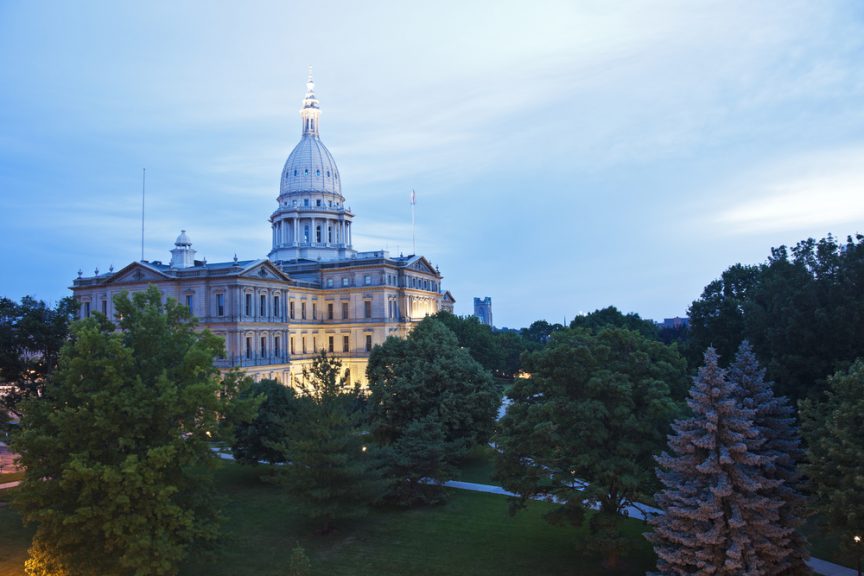Gravel roads can help municipalities save significantly on maintenance costs and lead to easier travel for residents — which is why Michigan lawmakers are considering investing in more of these unpaved surfaces.
Despite being the cradle of the country’s auto industry, Michigan is struggling to get its roads in acceptable condition. Between the state’s harsh winter conditions and heavy highway usage, Michigan drivers have to deal with crumbling infrastructure that’s been causing widespread delays and increasing wear-and-tear on vehicles.
Tasked with repairing roads while keeping costs under control, state lawmakers have begun looking into gravel roads as a cost-saving measure. Key decision-makers are arguing that state and local governments can streamline maintenance, save money, and create better travel outcomes for residents by taking some of the paved roads that the state has been unable to maintain and replacing them with gravel surfaces.
To do so, lawmakers and transportation stakeholders should be sure that they’re investing in state-of-the-art unpaved road stabilization and building technologies. By leveraging environmentally safe solutions that provide unpaved roads with pavement-like strength, local communities and Michigan authorities can get ahead of compounding infrastructural issues and ensure a smooth ride for everyone.
How Gravel Roads Can Help
As the Michigan state government deals with the problem of fixing the state’s challenged transportation system, investing in gravel roads offers lawmakers a potential way forward. Currently, the state has been dealing with funding shortfalls for roads and transportation, particularly when it comes to maintenance costs. Unless lawmakers can figure out how to square maintenance needs with the state’s budgetary constraints, drivers may not get the repairs they’re looking for on local roads.
However, replacing some of the state’s roads with gravel counterparts could help. When built and stabilized properly, unpaved gravel roads require less maintenance than heavily trafficked paved ones. This would allow the state to focus funding on the paved roads that especially need maintenance while providing communities with the thoroughfares they need to keep living their lives without interruption.
What Lawmakers Will Need to Consider
Deciding which roads will remain paved and which will be replaced with gravel counterparts calls for an open, informed dialogue between community leaders and residents. While the state urgently needs to find a workable solution for its transportation issues, this kind of project will require buy-in from those affected by such changes.
Additionally, replacing paved infrastructure with updated gravel roads calls for careful attention to environmental impact. For example, decision-makers will need to weigh how unpaved roads will drain in comparison with paved roads and update related infrastructure accordingly.
Investing in Long-Lasting Gravel Roads
As Michigan lawmakers consider investing in unpaved roads across the state, they should be sure they’re using taxpayer dollars as effectively as possible. By investing in industry-leading, patented road stabilization and building technology, communities can ensure their gravel roads are both durable and reliable.
With one of Midwest Industrial Supply, Inc.’s custom-built road building strategies in hand, state and local governments can replace paved roads that are expensive to maintain year in and year with gravel roads that last. Our suite of patented solutions use polymer-based emulsions to create strong and safe gravel roads with the soils already in place onsite.
If you’re looking to invest in gravel roads, the team at Midwest can help. Our experts take the unique properties of each worksite into account to design road building programs geared towards meeting your specific needs. Whether you’re looking to apply our products yourself or have our team of professionals apply them for you, Midwest is standing by.


